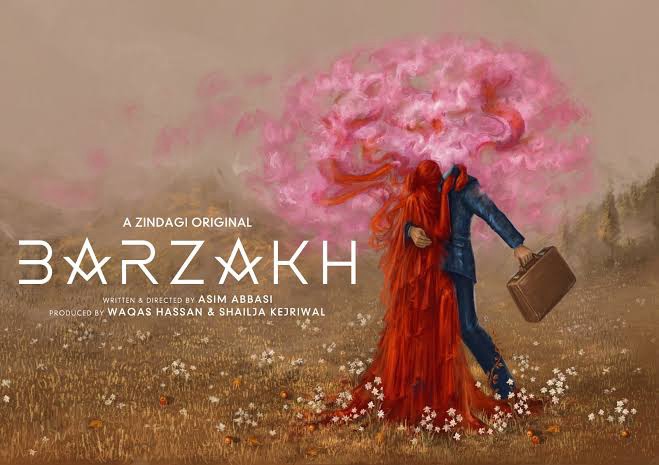Asim Abbasi’s Barzakh has finally made it to the screens, promising a magical journey. We’ve been transported to the Land of Nowhere and its secrets; however, all that is known so far is that the plot revolves around Jaffar’s obsessive love for his long-dead lover, Mahtab.
With only three episodes released, a thematic breakdown of Barzakh already reminds us of Mir Taqi Mir, Jorge Louis Borges, and Nayyer Masood, setting the stage for a dissection of its literary influences and thematic depths of love and memory.
The story takes off when Jaffar invites his children and grandchildren to his third and final wedding with Mahtab’sghost, set to take place on the night of an upcoming lunar eclipse. In terms of script, the project has an exceptionally well-thought mutli-dimensional approach, tastefully blending the necessary overlaps in sub-themes and sub-plots. As the story is rich with interpretive possibilities, its ode to everything the genre of magical realism stands for is definitely a treat.
Although, from the very beginning, the themes embedded in the plot are identifiable. There is a quest for an eternal, exceptional, unfathomable, and unattainable love caged in the curses of social, cultural, and religious bounds. Furthermore, the themes of class, eroticism, and sexuality supplement the much-needed spark for a political discourse. Yet there are concealed themes of memory, circularity, dreams, and infinity running parallel to the main ones that effectively justify the essentials of this genre.
Decoding the plot thematically, Asim, very delicately yet decisively, establishes love as the centre of universe while brilliantly showcasing a reflection of Mir Taqi Mir’s lunatic obsession with the moon (as his lover) in Jaffar’s love for Mahtab (the name literally means the Moon). This particular instance serves as the reminder that love never ceases to exist and it always comes back in one way or another. Most likely because love intends to remind its subjects that the universe registers, from the negligible to the greatest, each and every tale where love’s sanctity was justified and its essence was honoured in its true meaning.
“Everything that has ever existed, always exists”- Sheherzad
With the magical retelling of Mir Taqi Mir’s love affair through Jaffar, Barzakh highlights the ‘circularity’ of incidents. As we witness Jaffar’s lunatic love and incessant desire for union with the soul of his Mahtab, the audience is reminded of the power of human will to attain something only seemingly out of reach. Seemingly out of reach because humans are constrained by realistic human limitations but in the realms of imagination, where mind and soul are the leads, where the distinctions between real and unreal vanish, magic comes into play. This is where an infinite reality is created which is perhaps the only possible truth. The idea resonates heavily with Argentinian magical realist writer Jorge Louis Borges’ The Circular Ruins. Borges’ text is rich in themes of dreams, visions, infinity, and its attachment to circularity. Fascinatingly enough, the idea of existence in dreams, from Borge’s story, a phenomenon that continues during life and until after death, pans out the narrative of the plot as summed up by Sheherzad while crowning Mahtab as an object of Borges’ infinity.
It establishes a narrative where the circularity of the universe keeps life entangled within dreams, imagination, and reality. Similarly, Jaffar wishes to relive every moment with hisMahtab over and over again, even if it means expanding his reality, blending dreams into his world, calling Mahtab’s soul back or entering the limbo himself.
For the theme of memory, we turn to Nayyer Masood’s short story “Bun Bast,” where the protagonist seeks refuge in an estranged house following a street riot that was soon settled. Interpreting the story, it appears as if the boy took refuge in the house of his memories as he sought escape from the overwhelming hustle and pace of reality. This idea of seeking sanctuary in memories resonates deeply with Jaffar’s desperate attempts to escape the present and relive the past. In fact, Jaffar takes a step further and decides to redraw the seams between the human world and the realm of souls, the limbo, in order to escape his suffering, which is a direct result of the loss of love. His resolute faith in the infinity of love and magic serves as his roadmap to the estranged house of memories.
The kind of things humans do for love! As Jaffar’s war for the liberation from the torment of unrequited love unfolds further, there is much to look forward to. However, it is important to realize that the significance of love remains uncontested in every realm, whether it’s the Earth, the Heavens, or Limboland.
